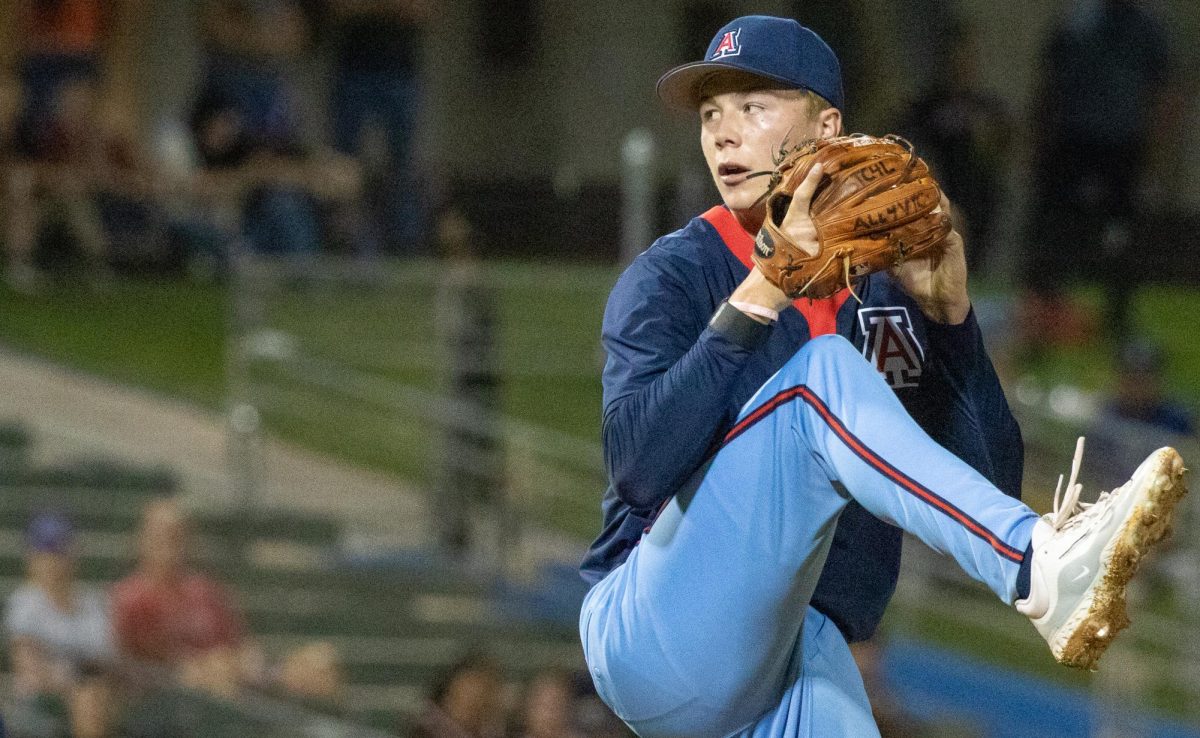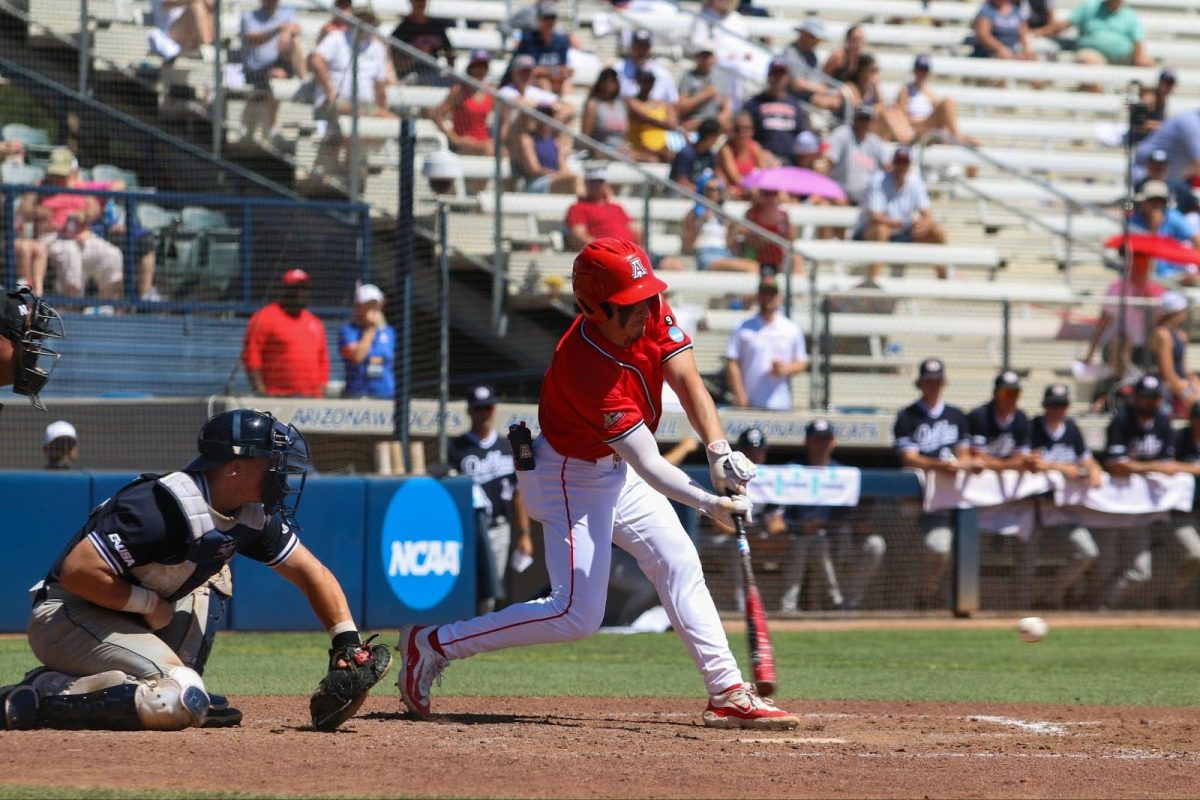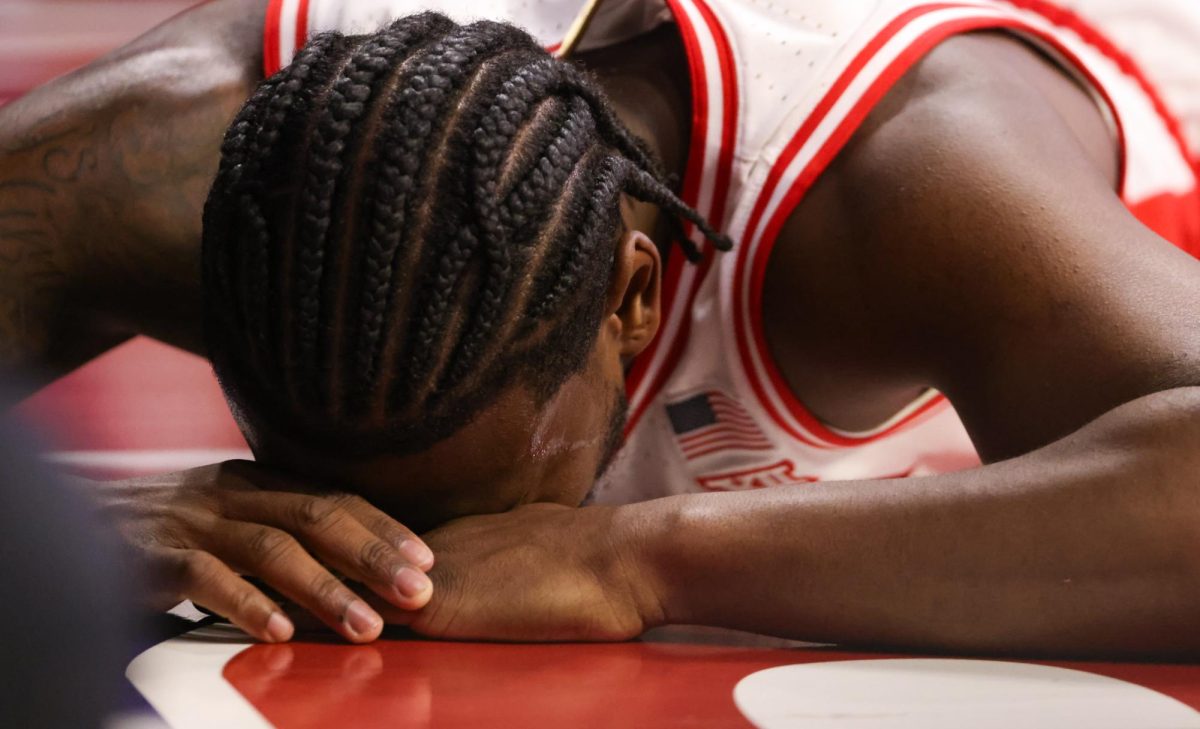Pro: Why wait another years?
Too early? Not ready? Says who?
Rob Gronkowski didn’t need his junior year to be ready for the NFL.
He might’ve used it to improve his NFL draft stock, maybe to get his name out there a bit more. And sure he could have honed his blocking skills or worked on running crisper receiver routes.
But Gronkowski didn’t need it to become more physical or to get his body ready for the NFL. At 6-foot-6, 265 pounds, he was already there his sophomore season.
See a 2008 AP Third-Team All-American honor for proof of success. See 672 receiving yards in the 2008 season while playing in only 10 games.
If the NFL allowed a player like Gronkowski to enter the league after his sophomore year, then NFL commentators would be using that word that NBA analysts recklessly throw around during its draft – potential. Big Rob has potential and that’s good enough for NFL scouts to drool over.
He’s not overconfident in choosing to go pro either.
“”It would definitely have to be the first round (of the NFL Draft), or else I won’t go,”” Gronkowski said in an October press conference.
Don’t think he’ll go that high? He’s done his research. After blowing up the Arizona tight end record books, all Gronkowski has to do is blow away the competition at the NFL Combine, an overly emphasized part of the draft process.
It’s worked well for past Arizona Wildcats – former UA running back Chris Henry left school early for the NFL after showing little consistency as a Wildcat but still got drafted in the second round of the 2007 NFL Draft. That came after his junior year, where he accounted for 581 rushing yards in a season, a far cry from a strong season for an NCAA running back and fewer yards than Gronkowski grabbed through the air.
A 4.40 second 40-yard dash in the combine will do that for a player.
So yes, Gronkowski will be drafted within the first two rounds, but unlike Henry, that will actually lead to a successful NFL career.
— Kevin Zimmerman
Con: Gronk will miss national spotlight
When Rob Gronkowski announced that he would enter the NFL Draft a year early, NFL scouts rejoiced and Arizona fans cried themselves to sleep. But you didn’t hear much of anything from anyone outside of those two circles.
That’s because Gronkowski missed his chance to become a nationally known superstar.
As a player there is nothing that Gronkowski lacks. He will always be one of the two or three biggest men on the field – even in the NFL – and his toughness and athleticism allow him to be an above-average blocker and an elite receiving tight end.
He even has an admirable will to get better, repeatedly stating that he intends to work out as much as possible between now and the NFL Draft, and to work on becoming an even better run blocker.
But when NFL Commissioner Roger Goodell calls his name at the NFL Draft – either in the first round or early-mid second round – most fans watching the broadcast will wonder who he is.
And that’s a shame.
Through two seasons Gronkowski made himself the best tight end in Arizona history and put himself on the same level as Oklahoma’s Jermaine Gresham and Florida’s Aaron Hernandez. But because he played for a school that, at the time, wasn’t relevant, he didn’t make a bowl game in 2007 and won a lower-end bowl in 2008 – he was never as nationally celebrated as the other two top tight ends.
Now that Arizona is a perennial contender in the Pacific 10 Conference and a contributor to national television game broadcasts, Gronkowski could have been the type of player you always see and hear on ESPN SportsCenter and College Football Live. That would have helped Arizona as a program in the national eye, and it would have helped Gronkowski’s draft stock to have a healthy season under the spotlight.
But instead Gronk will probably be drafted somewhere between picks 20-40 to a playoff team that needs one more receiving threat to get over the hump – he’s a perfect fit for the Baltimore Ravens – and football fans across America will have to wait for Sundays to see just how good Rob Gronkowski is.
— Tim Kosch














